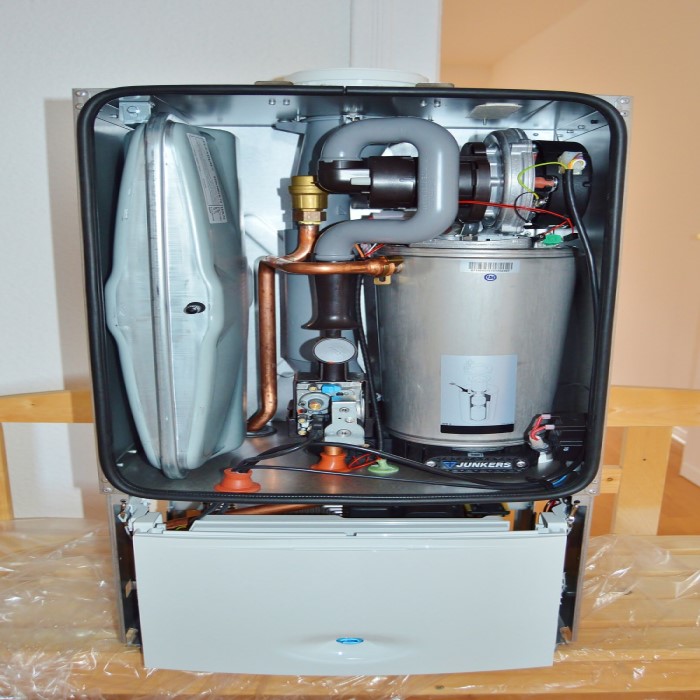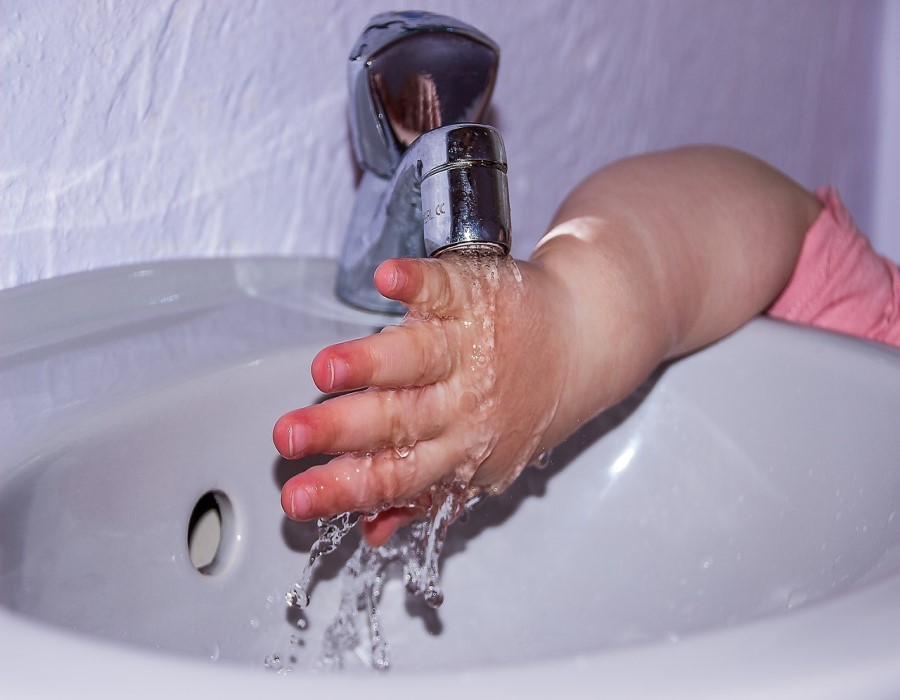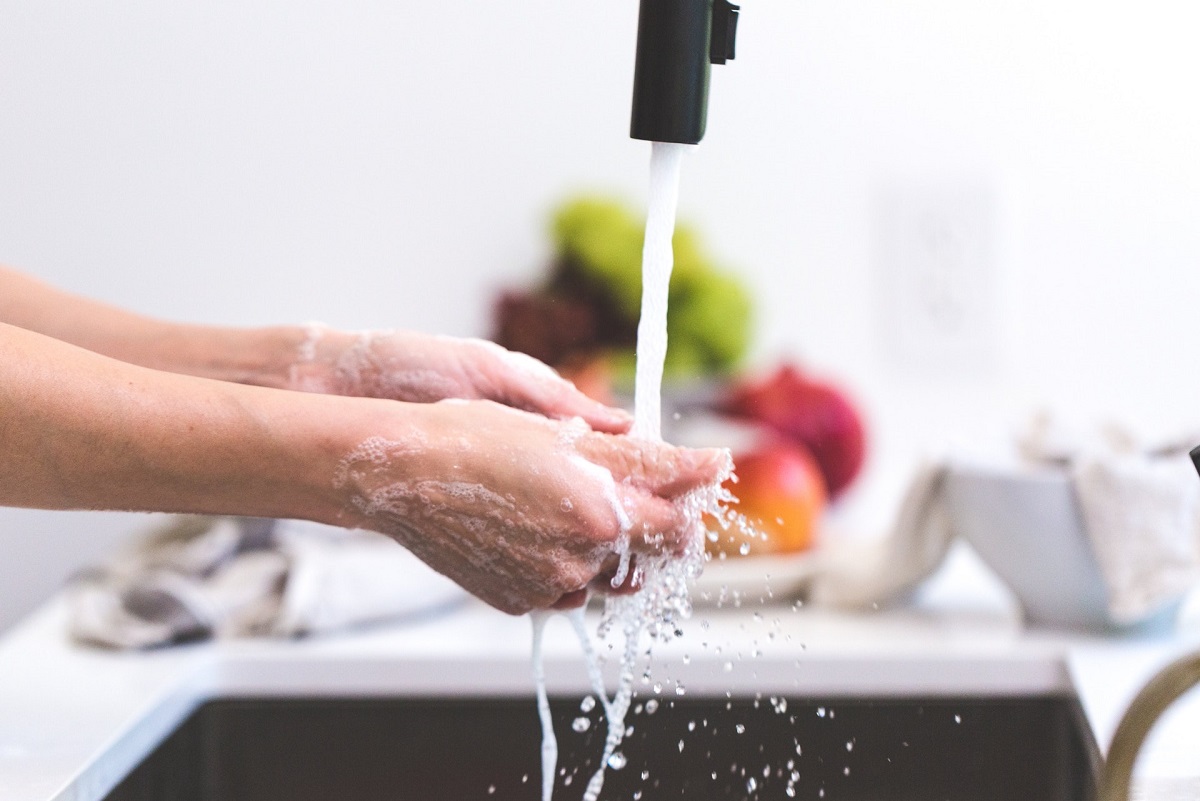RV water heater consumes power and you may wish to know whether to leave the RV hot water heater especially when not in use. Get tips of maintaining your RV tank heaters, how to reset a tankless water heater, and troubleshooting RV water heater not working.
So, should you leave your RV water heater on all the time? You have two options to answer this question:
First option:To save the environment against pollution and also save your expense to refill your RV gas or paying electricity, you can consider turning your trailer water heater off whenever you do not need hot water.
Besides, camper hot water heater takes shortest time and you could still enjoy the nature for some time as it heats up. Furthermore, the well-insulated RV tanks can keep the water hot much longer before the need to turn the water heater on.
Second option: You can still leave your RV water heater on all the time so you can have hot water whenever you want it without having to wait for the water to heat up. The RV hot water heater is durable and you have nothing to worry about possible damages due to running for long hours.
So, depending with your RV living expenditure budget on purchasing RV propane or paying electricity bills to run the heater you can either consider turning off the heater to cut down cost and save the environment or leave it running and pay extra for fuel or electricity.
More insights concerning RV water heaters has been shared including
| 1)Overview of RV Water Heaters How do RV water heaters work? Operating a hot water heater How long do RV water heaters last? | 5)RV Water Heater Troubleshooting Rv electric water heater troubleshooting Rv water heater not getting hot enough No Hot Water RV Water Is Too Hot RV Water Heater Takes Too Long to Recover RV water heater fires up then goes out |
| 2) Draining Your RV Water for the Heater How often should I drain my RV water heater? Should I drain my RV water heater after each use? | 6) Winterizing the RV Water Heater How do I winterize my RV water heater? Process of winterizing an RV water system |
| 3) Leaving Water in RV Tank How long can you leave water in RV tank? How to keep drinking water fresh on RV DIY activities to keep water fresh | 7) Must Know What happens if water is on and water tank goes empty? How to leave hot water heater while gone |
| 4) How to reset a tankless water heater |
1)Overview of RV Water Heaters

How Do Motorhome Water Heaters Work?
Just like any other water heater, RV hot water heaters require source of power. Depending with your RV model, the heaters could be running using propane (most common) and/or electricity. Thus, there are RV electric water heater and propane water heater.
The water tank size could carry about 6 to 10 gallons of water depending with your unit size. Ignition of the heaters can be done using either a pilot lighting or direct spark ignition.
However, you an RVer you will simply use a switch to turn on the heater when your RV is parked.
You have nothing to worry about your safety since there exists insulation and automatic pressure regulators for the system. Besides, check your manual to get specific details on safety measures to take based on your heater model for your RV water system.
The water temperatures can be regulated to heat to your desired temperatures. However, it is worth noting that the hotter the water the more power source it consumes.
Thus, if you plan to save on fuel just heat the water to moderately hot if you have to use hot water. If you are new to using an RV water heater the following steps can act as a beginners guide to get started with hot water heater. Specific details can be found in your user manual.
RV Water Heater Operation
- Locate the heater bypass valve
- Open the valve
- Allow water to enter into the primary tank
- To the nearest water outlet, connect the RV
- Begin pumping water using the onboard pump
- Hot water can be turned on
- Water will start moving through to be heated in the heating pump
- Once the water fills as indicated in the fill line (Check your manual) you can begin enjoying the warm water from the taps.
For more insight, watch this video to see the visual illustration of how a motorhome water system works including water heater, pump, and tank.
How Long Do RV Water Heaters Last?
One of the most durable camping equipment are the hot water heater in camper that can last up to 10 years. However, several factors can affect the durability of the RV and can either lower or increase the lifespan. Just like any other device proper maintenance would boost the device durability.
You can enhance the lifespan of the heater by flushing and draining the RV heater tank, and replacing the anode rod. Also, in the instance your tank is filled with hard water depending with your region consider using a water softener to prevent clogging and overworking the heater.
Specific maintenance details can be found on the manual suitable for your RV model.
2) Draining Your RV Water for the Heater
How Often Should I Drain my RV Water Heater?
RV water heater draining after every trip especially when you are not planning to go to another trip sooner or you live in RV fulltime is a good habit. This ensures you always have fresh water at the beginning of your trip since you will have to refill the tank before embarking on your journey.
Besides, keep in mind that leaving water in the tank for longer duration without using it can start producing a bad stench. In fact, some people have noticed that leaving water in the RV tank while it’s unused for about 1 week to a month result in a bad rotten egg like smell.
Never use an overstayed water with a rotten egg like smell to drink especially when camping with kids who are young and may not have strong immunity to withstand the contaminated water. The last thing you would wish is anyone among you to get sick while on an RV vacation.
Should I Drain my RV Water Heater After Each Use?
Once your adventurous trip ends, you are likely to end up in a dilemma of whether or not to empty the RV heater tank. How often do you have to empty RV tanks can be a concern.
It could be better if you can to be draining the water after every camping RV travel trip. Otherwise overstayed water would result in a rotten egg like smell or Sulphur smell due to bacterial growth which is not pleasant to use and you may need to sanitize the system.
Besides, it’s quite fast to drain the water. First, since the heater was running the water is still hot. For safety precautions open a hot water faucet so that pressure may reduce as the water flows out.
Then open the draining plug. Allowing pressure to be released first prevents the plug from flying away and possibly giving you unplanned shower.
Once all the water has drained return the drain plug in place. Consider having extra plugs for your RV travel in case you forget to return it back. Besides, the plugs are affordable.
3) Leaving Water in RV Tank
How Long Can You Leave Water in RV Tank?
RV living entails using water stored in RV holding tank to do all activities including cooking, drinking, and washing. As a result, it is important to always use fresh water for drinking and cooking to prevent contamination of water.
The maximum time to store water without using is about 2 weeks. However, it depends with how fresh your water is since the water can still be contaminated and smell bad even before 2 weeks end.
The duration is safe for drinking and cooking waters. However, if you carry extra bottles of water for drinking such that the RV water is simply used for flushing toilet and cleaning, then the water can stay much longer. All these depends with your desire to use fresh water.
The shorter duration water stays in the RV tank without being used the safer and much fresher it is. When water stays too long in the tank it ends up being a better breeding ground for bacteria and algae.
As a result a pungent Sulphur or rotten egg smell can be smelled once you come back and open a water faucet. This spoiled water can be harmful to your health when consumed or used to take showers. Learn how to prevent and get rid of bad smell in RV water.
So if you rarely do camping perhaps once every month then you can consider emptying the tank after every trip. It ensures that the next trip you use clean water and you have nothing to worry about water contamination.
Sometimes, you could be camping in a region where water is scarce and perhaps you might want to save water by not emptying your tank when one trip is over. However, think about your health.
It’s better to spend extra on pumping fresh water every trip to your RV and stay healthy throughout your trip rather than spend more days on medication and medical bills simply because you used contaminated water in the name of saving cost.
How to Keep Drinking Water Fresh on RV
Essential travel trailer tip is to always ensure you drink fresh clean water irrespective of how long your trip would last. Otherwise, consuming contaminated water will cause illnesses that is likely to interfere with your schedule and ruin your trip since you will need to see a doctor.
Do It Yourself (DIY) activities to keep water fresh
The following are some of DIY activities that will help you always have fresh water in your tank.
- Empty you water tank after every trip to prevent water from overstaying in the tanks and breed bacteria or algae especially if next trip is after 4 days or more.
- Clean your water tanks periodically.
- Once cleaned, sanitize all the water tanks using bleach. Mix water and bleach to about 5 gallons to sanitize a 50 gallon tank. Stop once a bleach smell comes out of a faucet.
- Use fresh and good quality water to fill the tanks before embarking on your trip
- Properly cover all the holding tanks and ensure they are cleaned.
4) How to reset a tankless water heater
It is not complicated, you can reset your tankless water heater using a reset button. Despite the availability of various models of tankless water heater, a red button often located at the upper thermostat of the electric water heater is the reset button.
However, in a few models the reset button is often enclosed in the panel. You simply open up the panel of the electric water heater and you will see the reset button. Once you access the button, you need to analyze its current state first before resetting. In some models the thermostat is at the bottom and the reset button is also located at the bottom.
A lit up button implies the switch has tripped. Thus, resetting has to be done. Press the red button of the tankless water heater to reset it. It is this simple when it comes to how to reset a tankless water heater.
5) RV Water Heater Troubleshooting

1. Rv electric water heater troubleshooting
When the efficiency of the RV water heater reduces, it may come to your attention that the RV water heater not getting hot enough. In this case, you need to troubleshoot and fix the problem. In most cases, RV water heater not working may be caused by either the heater anode or the thermostat is faulty.
In this case, what do you do when RV water heater not getting hot enough? Follow this step by step guide to RV electric water heater troubleshooting:
- Drain all the water from the water heater tank
- Rinse the water heater tank
- Locate the electric water heater element and replace it with a new one
- Fill the water heater tank and put on the water heater. It should work. If not
- Locate the water heater thermostat
- Replace the thermostat switch with a new one
- If the power switch is also faulty, replace the power switch. The system should work now
2. Rv water heater not getting hot enough
Apart from a malfunctioning water heater element or thermostat problems as fixed above, there are other problems that could make RV water heater not getting hot enough. So be sure to:
- Check the thermostat temperature setting: when the temperature has been set too low the RV water wouldn’t be hot enough
- Damaged or broken dip tube: check for leaks in the dip tube since a faulty dip tube could allow mixing of hot and cold water and you will end up getting water that is not hot enough.
- Small water heater tank: The water heater tank capacity should be able to fit your needs. However, if your demand for hot water is high and the water heater tank is small then less time to heat up would result in RV water heater not getting hot enough.
3. No Hot Water
In such as case, possibility that RV water heater not working is high. As explained in RV trouble shooting #1 above, ensure the pilot button is on. You can do a reset your RV water heater, change the electrical water heater anode, replace the thermostat or the thermocouple, or fix the power switch to the water heater. Either of this should make you water heater start heating.
4. RV Water Is Too Hot
Check your thermostat temperature settings. Reduce the water temperatures you desire to be heat. Often, during hot water you may not need to reduce the temperature settings of the thermocouple and increase it during cold or winter period. However, sometimes the thermostat may be faulty and you should replace it.
5. RV Water Heater Takes Too Long to Recover
Often, the problem occurs in propane water heater. RV propane water heater troubleshooting could entail checking the thermostat temperatures. If the thermostat temperature is too low then the RV water heater would take long to recover.
Also, check the burner as it may make RV propane water heater not working. Clean it well and if the burner condition seems not to be good then have it replaced. Check the propane gas pressure. If the pressure is too low adjust it. However, often you may need to clean the vent linking the propane to the water heater.
6. Rv water heater fires up then goes out
Possibly, the burner is dirty and needs to be cleaned. When the burner is clogged, RV water heater may seem not working. Clean up well all the burner openings. Also, clean up the vents. Besides, check the thermocouple to see if it is working.
5) Winterizing the RV Water Heater
How Do I Winterize my RV Water Heater?
It is important to winterize your RV water heater to prevent it from being damaged by the extreme cold of the winters. Winterization also increases the durability of your camper water heater irrespective of the harsh weather.
Each manual has the manufacturer’s process to winterize an RV. However, the following is a general guideline of how the process can be safely conducted either by yourself or by getting a technician to do it for you.
To begin with, you require basic tools and equipment for winterization. You need an RV antifreeze (non-toxic), hand tools used to remove drain plugs, wand for cleaning the holding tank, water heater by-pass kit (in case it wasn’t installed), and tubing or water pump converter kit.
Process of winterizing an RV water system
The following is the step by step guide of DIY on how you can correctly winterize your RV water heater system.
- Bypass and remove any inline water filters if you have
- The holding tank containing freshwater can be drained
- The black and the grey holding tanks can also be drained.
- In case of built in tank use the want to clean the tanks
- Using WD 40, lubricate the termination valves
- Water heater can be drained
- Open pressure relief valve.
- Remove the drain plug (CAUTION remove the plug only after relieving the pressure. You can also open hot and cold water faucet including outside shower and toilet valve to relieve the pressure. Also the water should not be hot. Otherwise you can be burned)
- Ensure you open the low point drainage for both cold and hot water and remember to shut them once the system has been completely emptied.
- Close all opened faucets and drains
- Water heater need to be bypassed using a bypass kit to prevent the antifreeze from filling up the water tank and simply wasting the resource.
- Disconnect the water pump from the inlet side. You can as well install the converter kit for the water pump.
- Put on the water pump.
- To pressurize the system slowly open the hot faucet then the cold faucet until you see the antifreeze substance.
- Continue opening other faucet remember to open the outside shower faucet
- Go to the toilet and flush it until you see the antifreeze substance
- Power off the water pump
- Open the faucet to release the buildup pressure
- Check the city water inlet outside.
- Uncover the small screen covering the inlet
- Push in the valve using a screwdriver and stop when the antifreeze can be seen
- Replace the screen
- On each drain, power antifreeze substance about a cup
- Also pour the antifreeze in the toilet and flush
- Turn off the water heater if it uses electricity
- Ensure you have closed all faucets for both hot and cold water
- Follow your manual procedure to winterize your washing machine and icemakers
- The RV water heater has been completely winterized.
6) Must Know
What Happens if RV Water Heater is On and Water Tank Goes Empty?
Just like any other water heater, it is advisable not to power on the heater whenever there is no water in the holding tank to prevent damaging the heater. So, you also need to properly maintain your holding tanks water to ensure effective functioning of the heaters.
However, what if your RV water runs out when you are taking a shower?Two scenarios are likely to be experience.
The first scenario
Whenever the hot water tank is almost running out of water when you open the shower it will sputter rather than release sufficient water.
It is because of reduced pressure. This should signal you that you are out of water and you need to power of the heater manually. No harm will occur to the heater since some water is still in the hot water tank.
The second scenario
Your heating system could be automatic such that when water is almost running out due to resultant reduced pressure the systems shuts off automatically.
A thermal cutout may be used to automatically disconnect the unit from being powered thus protecting your device from getting damaged. You should be back to enjoying your hot shower once the tank is filled.
Note
Thus, for precaution measures ensure your tank is filled before starting a long trip where water consumption would be high. You can always refill whenever you check and notice that the water levels are low.
Consult your manual on specific guidelines based on your model on how to act when you run out of water.
How to Leave Hot Water Heater While Gone
It’s a fact that you won’t be spending all your days in the RV in order to attend to other business. Besides, it’s not always the case that you will be on hot water use since you could be out having fun. But have you wondered whether or not you should turn of the water heater when gone?
Don’t turn off your RV heater while gone. It is because leaving the heater on has several advantages that could save you extra costs of maintenance and even expenses.
Ensuring the heater is on prevents water from freezing even during the winter period and you don’t have to worry about possible bursting of your pipes.
Besides, when you go out one of your team member may need to use hot water and it could be much easier to start using the already hot water than wait much longer for water to heat up. In addition, when you return you could just enjoy the hot water as soon as you are back.
Furthermore, the heater consumes much fuel or electricity to begin heating freezing or cold water. Consequently, you could save some costs on reheating water from scratch.
However, if you are not convinced to leave the heater on for fear of using more energy to heat the water when you don’t need it, then here is another alternative.
Simply ensure you hot water temperatures are turned low so it’s just warm enough to prevent freezing and consumes low power while heating.
Check out other RV best practices to engage in while driving in an RV.
Conclusion
RV water heaters are an essential RV accessories to have. Knowing how well to maintaining your RV water heater is important including common RV water heater troubleshooting issues such as; how to reset a tankless water heater, RV water heater not working, RV water heater not getting hot enough, and RV electric water heater troubleshooting.

